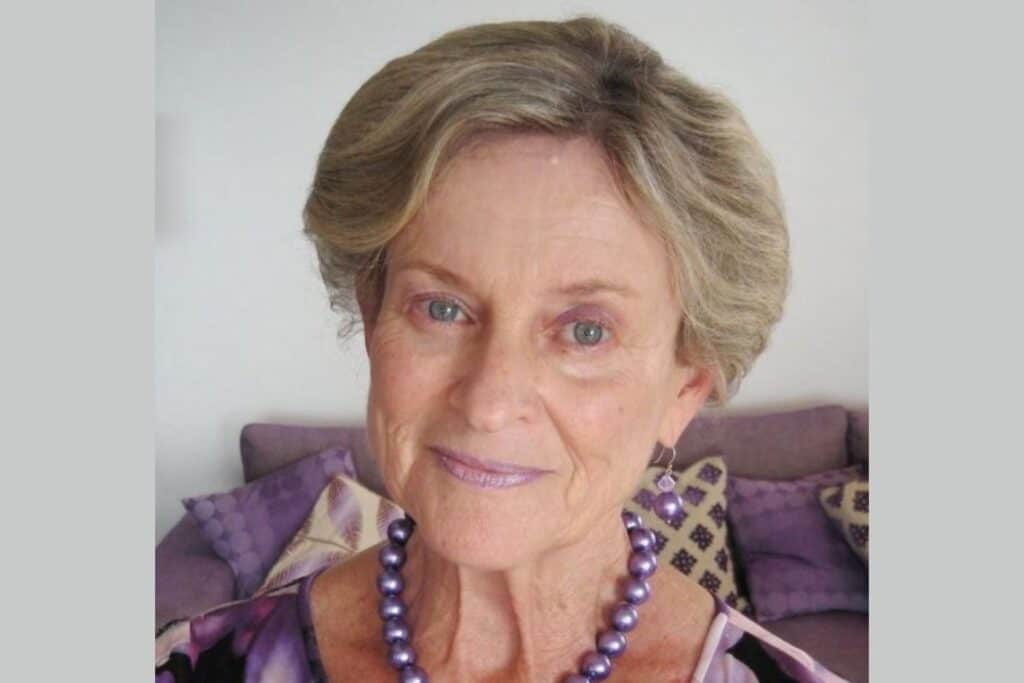Dr Dale Spender AM, an Australian feminist writer, teacher, academic and speaker, has died at age 80.
Known as “the feminist’s feminist” and “The Woman Who Wore Only Purple”, Spender has 30 books published in her name and has delivered 300+ keynote speeches around the world.
Spender always was a fierce feminist from the day she was born in Newcastle, NSW, in 1943. In fact, she shares her birthday – 22 September – with Christabel Pankhurst, early radical feminist and Suffragette.
In a statement following her death, Spender’s family said this fact was always “a source of joy and humour in her life”.
“At heart, a teacher, a writer and always a feminist, Dale Spender lived a life driven by passion for women’s equality and for education,” the family wrote.
“She brought numerous women along with her, attested to by the number of publications written or co-edited with other established and new writers.”
Education
Spender graduated from Burwood Girls High School with first class honours in English and history, which she attributes to the guidance of her female teachers. She completed her two other subjects with “borderline passes”, her family said.
Spender completed a Bachelor of Arts and teaching qualifications, before starting her first teaching job at an all-boys school in Sydney. At the school, she, along with other female staff, were expected to make morning tea, while male staff members would be busy with school decision making at the local RSL Club.
Later, Spender completed an MA in English Literature and received an Honorary Doctorate by QUT. When the University of Sydney English Department rejected her PhD proposal to study “mateship in the Australian novel”, she travelled to the UK to study at the University of London.
Spender published her PhD in 1980, titled ‘Man Made Language’. The work explored several aspects of the English language that highlighted male domination. For example, while the stereotype is that women talk too much, in reality, it was men who would dominate the conversation and often interrupt when women spoke.
In their statement, the family noted Spender was “delighted” when the word “mansplaining” was coined.
The Woman Who Wore Only Purple
Spender’s years in London saw her publish a number of other books, including Women of Ideas and what men have done to them (1982) and Invisible Women: The Schooling Scandal (1982).
She also joined the Fawcett Society, an organisation named after women’s rights campaigner and suffragist Millicent Fawcett. The colours of the organisation and of the women’s suffragists movement – purple, green and white – inspired Spender’s decision to only wear purple for the rest of her life.
It was at the Fawcett Society that she found the Dora Meeson suffragists banner from 1908, which was used by British suffragists to urge the government to grant women the right to vote, as the Commonwealth of Australia had done. Spender worked to have the banner returned to Australia, where it is now on permanent display in Parliament House.
Spender also worked to have the writings of Australian women on bookshelves in Australian schools, libraries and homes, after she discovered a number of published books from the 18th and 19th centuries in the stacks of the British Library. They were written by female writers she had never even heard of.
Spender was an author, inspirational speaker, thinker and editor. She edited for the Penguin Australia’s Women’s Library, where she republished the writings of forgotten female writers, with the establishment of the Pandora Press, the Routledge Press feminist imprint.
Spender returned to Australia in the late 1980s and lived in Brisbane, Queensland. In 2001, alongside businesswoman and friend Majorie Morton, she established the Second Chance program, an organisation to raise funds for homeless women.
‘Feminism has fought no wars’
Feminism was at the heart of everything Spender did with her life and she was passionate about educating people about the cause. A popular quote from Spender, quoted by Senator Penny Wong in a 2016 episode of Q+A, sums up the ethos of her work.
“Feminism has fought no wars. It has killed no opponents. It has set up no concentration camps, starved no enemies, practiced no cruelties,” Spender said.
“Its battles have been for education, for the vote, for better working conditions, for safety in the streets, for child care, for social welfare, for rape crisis centres, women’s refuges, reforms in the law.
“If someone says, ‘Oh, I’m not a feminist’, I ask, ‘Why? What’s your problem?'”
Spender was known as the eccentric “purple aunt” to the children of her brother, Graeme, and her sister, Lynne. She was close with her siblings, her father Harry (Frank Henry) Spender, and especially with her mother, Ivy Davis.
For over 45 years, Spender lived with Ted (Emeritus Professor ET) Brown AC, an academic and geotechnical engineer, to whom she credits for helping Spender with all her published work.
“The Woman Who Wore Only Purple” will be missed by many, her family said.
“Dale Spender was intelligent, witty, creative, generous, prolific and brilliantly controversial,” the family wrote in their statement.
“She will be sadly and sorely missed by those who knew and loved her and who benefitted from her generosity and humour, her prescience and her lifelong commitment to feminism and women’s equality.”


